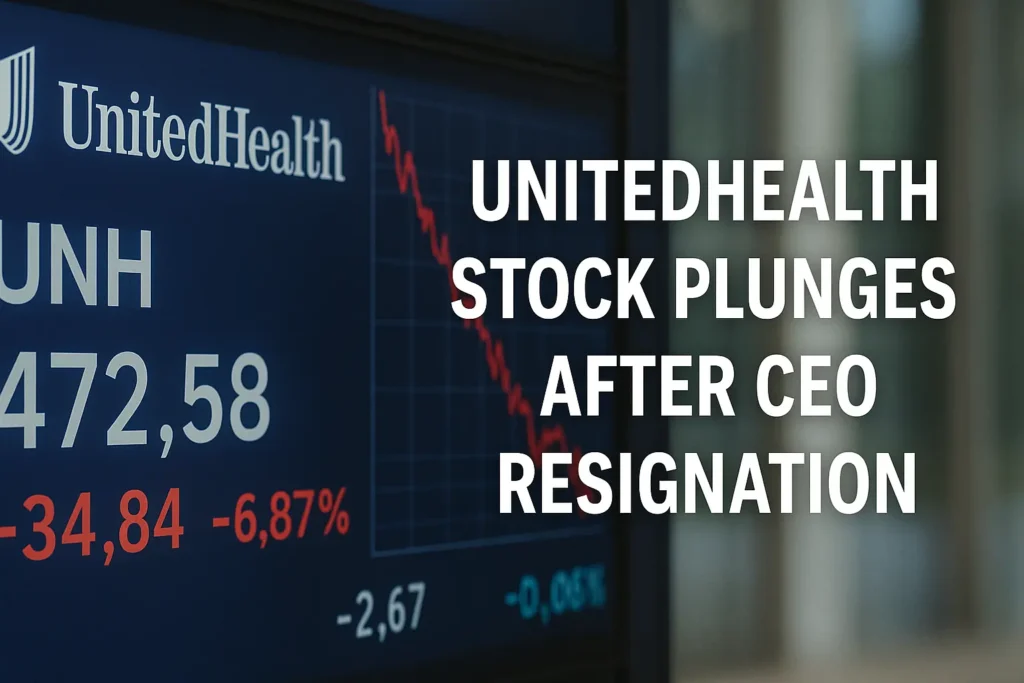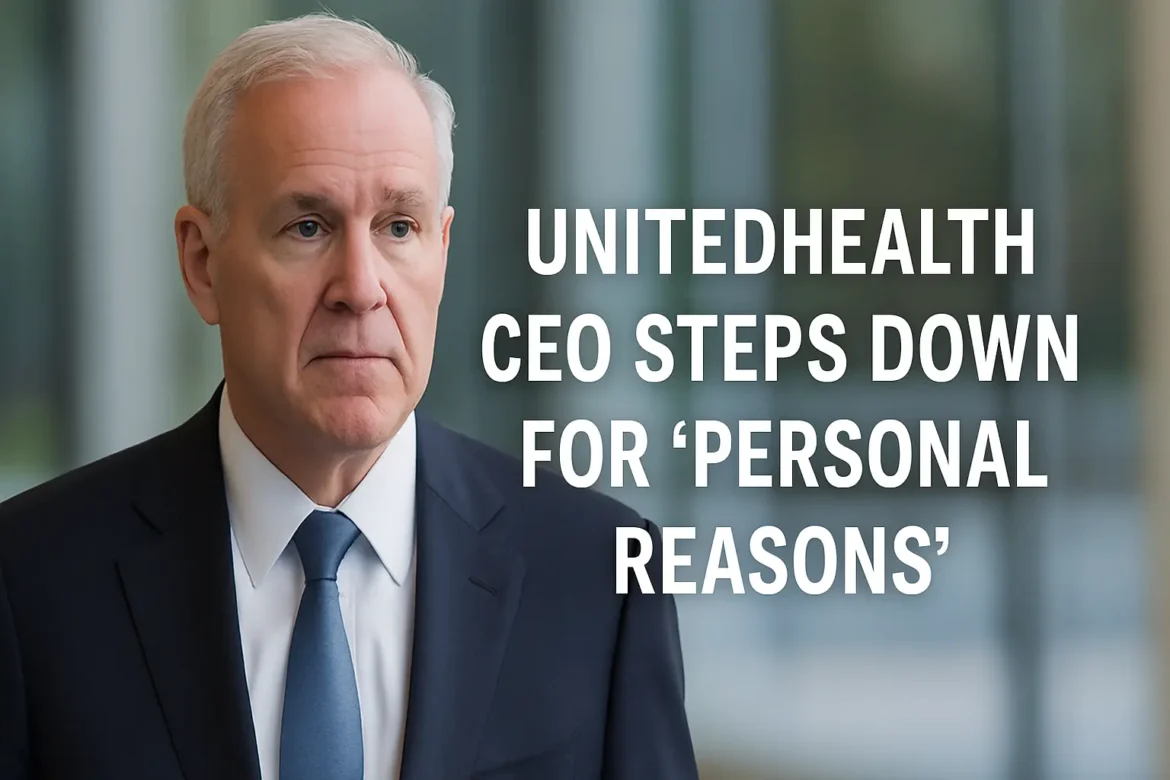Date: May 13, 2025
In a move that caught both Wall Street and the healthcare industry off guard, UnitedHealth CEO steps down for personal reasons. Yes, you read that right—Andrew Witty, the executive at the helm of the world’s largest healthcare company, resigned just as the company faced mounting challenges. Let’s walk through what happened, what it means, and why it’s more than just another CEO headline.
The Announcement That Shook the Healthcare Industry
UnitedHealth Group issued a short, almost clinical statement: CEO Andrew Witty was stepping down, citing personal reasons. Taking his place? Longtime board chair Stephen J. Hemsley. If that name sounds familiar, it’s because Hemsley previously served as CEO and led the company through explosive growth in the early 2000s.

Andrew Witty’s Time at the Top: Not Just a Smooth Ride
When Witty took the reins in 2021, expectations were sky-high. He had the pedigree—former CEO of GlaxoSmithKline and president of UnitedHealth’s Optum unit. Early on, he expanded programs like free COVID testing at pharmacies. But then came the curveballs.
- Cyberattack: A ransomware attack on Change Healthcare affected millions, leading to congressional hearings and major disruptions.
- Profit Woes: April 2025 brought the first quarterly earnings miss since 2008, and the company slashed its full-year forecast.
- Tragedy: In December 2024, UnitedHealthcare CEO Brian Thompson was fatally shot—an event that rattled the company to its core.
Witty publicly addressed many of these crises. He apologized for the cyber breach, warned of cost spikes in Medicare Advantage plans, and acknowledged the emotional toll of Thompson’s death.
Market Reaction: It Wasn’t Pretty
The stock tanked—dropping 16% in one day. Investors were already nervous after April’s guidance cut. Add a surprise CEO exit, and it felt like UnitedHealth was spinning out. Other insurers like CVS and Elevance also saw their shares slide. This wasn’t just about UnitedHealth; it reflected broader uncertainty in healthcare.

Analyst Buzz: What Experts Are Saying
“Abrupt and surprising,” said one analyst. Another called it a “stopgap,” suggesting Hemsley’s return isn’t a long-term fix. Many questioned whether the board has a real succession plan. Even insiders felt uneasy. When your replacement is a 72-year-old former CEO, the message isn’t exactly one of innovation and forward momentum.
So What’s Next for UnitedHealth?
Hemsley will likely act as a stabilizer. He knows the company and the playbook. But he’s not the future. The company says Witty will stick around in an advisory role, but let’s be honest: it’s Hemsley’s ship now.
The company also faces stiff headwinds: rising care costs, public scrutiny, and regulatory heat. And Medicare Advantage, once its crown jewel, is bleeding money thanks to higher-than-expected usage. The pressure’s on to cut losses and find growth again—fast.
Bigger Picture: Healthcare’s Tough Season
This isn’t just a UnitedHealth problem. CVS Health replaced its CEO last year. Humana warned of profit pressure. Medicare costs are soaring across the board. As consumers, it means more uncertainty in our insurance coverage. For investors? Buckle up—it’s going to be a volatile ride.
Final Thoughts
Witty’s departure might be labeled “personal,” but the context says otherwise. It reflects the stress and scrutiny that comes with leading in today’s complex healthcare ecosystem. For UnitedHealth, the challenge now is regaining trust, stability, and growth—while navigating the mess left behind.
Frequently Asked Questions
Why did UnitedHealth’s CEO step down?
Andrew Witty stepped down for personal reasons, though analysts believe ongoing financial, regulatory, and reputational challenges played a major role.
Who is the new CEO of UnitedHealth?
Stephen J. Hemsley, former CEO and current chairman of the board, has returned to the role as CEO effective immediately.
How did the stock market react?
UnitedHealth’s stock dropped 16% on the day of the announcement, reflecting investor concern over leadership stability and profit outlook.
What issues was UnitedHealth facing before the resignation?
The company dealt with a massive cyberattack, rising medical costs, missed earnings, regulatory probes, and the tragic death of another executive.
What does this mean for UnitedHealth customers?
Customers may not see immediate changes, but ongoing issues in claims processing, Medicare costs, and security could impact experiences over time.
For authoritative and updated reporting, also consider checking:
UnitedHealth Group Leadership Change
Related coverage you’ll find interesting:
Jayson Tatum’s Right Leg Injury Shakes Celtics in Game 4

